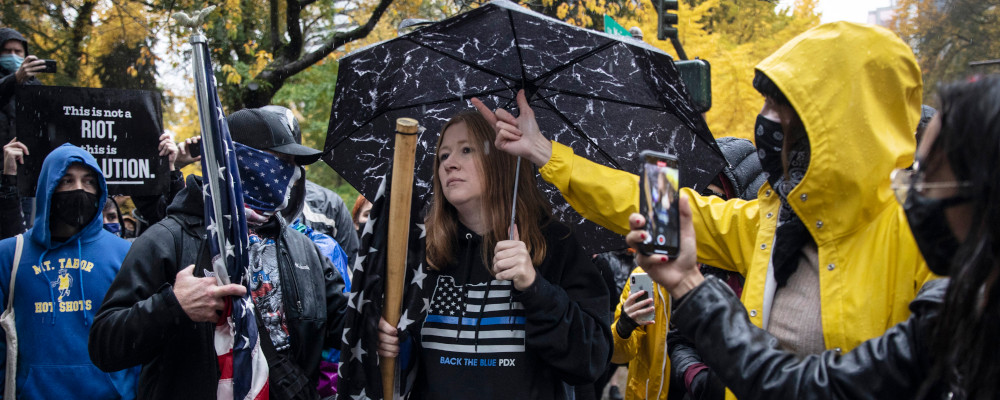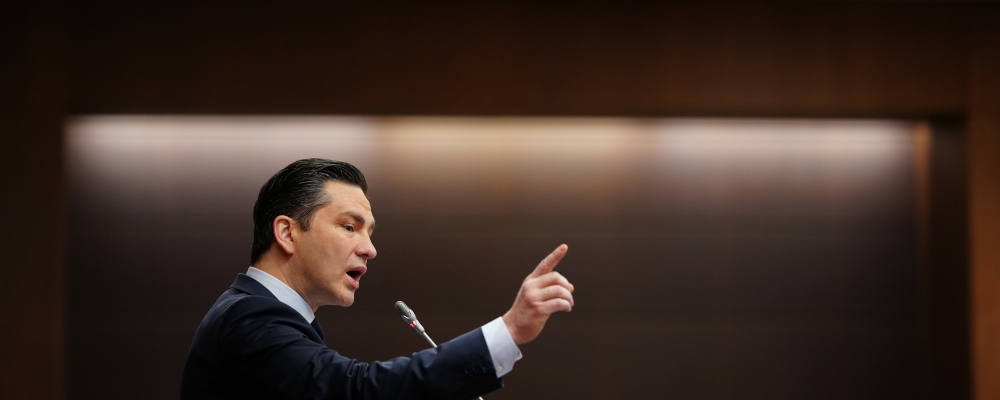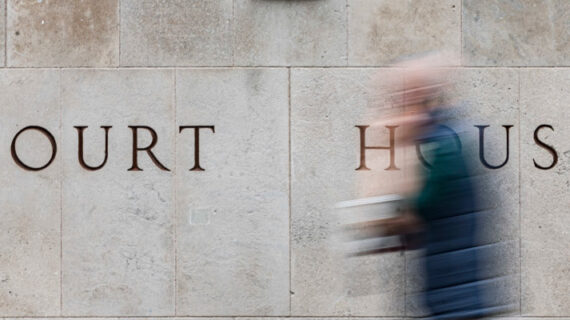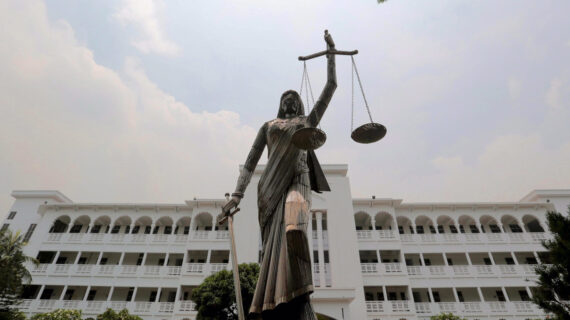If you have a dog, you will know that a dog whistle makes a high-pitched sound that only dogs can hear. But if you are a public figure accused of issuing one, it is quite another matter.
“Dog whistle” has become a popular phrase, frequently uttered by activists over the past few years. I got curious about its precise meaning when a left-wing friend of my daughter’s started accusing the Conservatives of using this verbal device to communicate any number of nefarious and outrageous messages.
Here’s how Merriam-Webster defines it: “[In politics], an expression or statement that has a secondary meaning intended to be understood only by a particular group of people.”
Here’s my translation: a dog whistle is believed by some to be a secret coded language used to pass on ideas meaning the opposite of those being spoken. Labeling an opponent’s words as a “dog whistle” is used to justify the opinion that the listener doesn’t trust or believe what is being stated.

In other words, it’s a convenient way to call someone a liar or to completely discount what they tell you if you don’t like what the other person is saying to you. Simply dismissing their words by calling them a “dog whistle” and attaching a list of motives, without even having an obviously offensive or libelous word to point to, now suffices. That way, you never have to believe anything you hear from someone you don’t like.
The irony is not lost on me. “Dog whistle” is itself coded language to accuse someone else of using coded language. It would be laughable if it weren’t so serious.
Now we come to how this is used. Take, for example, the case of Conservative leader Pierre Poilievre: how are people coming to believe the litany of nasty motives attributed to him?
Here’s how a reader of the Welland Tribune, a respected 161-year-old newspaper, put it in their Letters to the Editor page:
By definition, a dog whistle is the use of code or suggestive language in political messaging. Poilievre is becoming a master at the art of using this tactic to garner support from particular groups. It is language that appears normal to the majority of people but communicates specific things to intended audiences. It is generally used to convey messages on controversial topics without attracting negative attention.
Justin Trudeau has even accused Poilievre of trafficking in them.
I initially thought I was missing something, so I went online to find out where these accusations were coming from, what I had overlooked, or what he was supposed to have said or done. Instead, I found nothing except reports attributing various motives to Poilievre, based on interpretations of what the writers called “dog whistles.”
Here are a few of the “terrible” and “reprehensible” phrases he supposedly uses to hide his true motives: “common sense agenda,” “axe the tax,” “fiscal responsibility,” “parental rights,” and “globalism.” I am sure there are plenty of others just as “bad.”
This is not to say that the concept is completely meaningless. There are, in fact, examples of dog whistles being deployed by terrible people for nefarious ends. But tarring a mainstream political opponent with that brush should require more evidence than is being offered here.
Among the accusations is this one: Poilievre posted a tweet expressing condolences for the families and colleagues of two police officers who were killed in the line of duty in Edmonton in March 2023. It was accompanied by an image of the Edmonton police crest, with a thin blue line across it, meant to symbolize police solidarity and honour fallen officers. It is a symbol of the line officers walk between life and death while serving, and can be traced back to the 1920s.
The symbol had apparently been largely abandoned over the past few years following the Black Lives Matter protests when the thin blue line came to be viewed by some as racist, with some purporting it actually represented the division between Black people and white (presumably) police officers. The symbol was subsequently co-opted by some extremist groups, meaning that for some, this irredeemably morphed any representation of the thin blue line into a symbol of white supremacy, pushing some police forces to ban its wearing on uniforms. Therefore, according to this winding narrative, Poilievre’s condolences to two dead police officers were a dog whistle, secretly sending a racist statement to his followers.
Really? It appears that no one questions the logic of these statements, never mind their absurdity. It is stated, therefore it is true.

Another example: two slogans Poilievre has used in the past—“Reclaim what has always been yours” and “Take back control”—have been cited as dog-whistling, anti-immigrant messages. However, his track record would suggest the more likely explanation is he is simply promoting less government interference in Canadian lives.
When Poilievre criticizes the World Economic Forum and the “Davos elites,” is he truly intending to signal his coded commitment to disturbing antisemitic conspiracies, or is he instead pushing back against anti-democratic elites seeking to override local government rule? To be sure, if the former, then he should be vigorously condemned for it. But again we must look to his overall track record, and I would suggest his staunch and steadfast support for Israel belies the true nature of his intentions here.
He has also been accused of dog whistling to white supremacists for saying, “I’m a believer in using simple Anglo-Saxon words that strike right at the meaning that I’m trying to convey.” Again, just because some ideologues have co-opted something for their fringe ideology does not mean the phrase or concept should be considered always and irredeemably offensive. Preferring clear, common speech—as any politician should!—does not an automatic white supremacist make.
Many ostensibly sensible people believe otherwise, including former prime minister Kim Campbell, who recently called the Conservative leader a “hate monger.” Wherever did she get her outlandish opinion? It certainly did not come from his record.
After an extensive online and Hansard search, I have yet to find any of the extreme views Poilievre is said to have, or anything in his background that would indicate that he might hold hateful views.
I have used Poilievre to illustrate this dog whistle phenomenon, but the real issue is the manipulation of public and private opinion using such a cheap and shoddy device. How can so many fall for it, irony and all?
That Poilievre holds views opposed to those of the woke Left is undeniable. But given that he apparently now shares those views with a very large and growing number of Canadians, his political opponents would be wise to find a new tactic with which to take him down. Sure, he would be easier to drive from the public arena if he really was a racist hate-monger, but the actual evidence for that case is non-existent. My suggestion? Try grappling with his actual words, his plain-stated policies and positions, if you wish to have any hope of defeating him.




